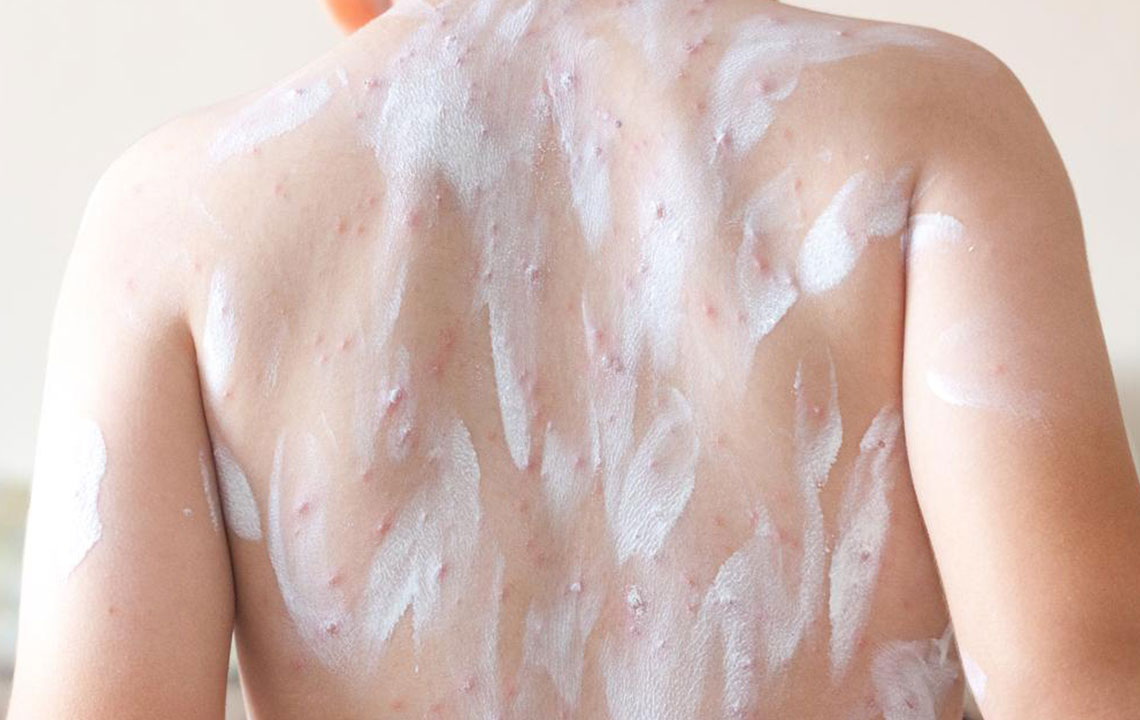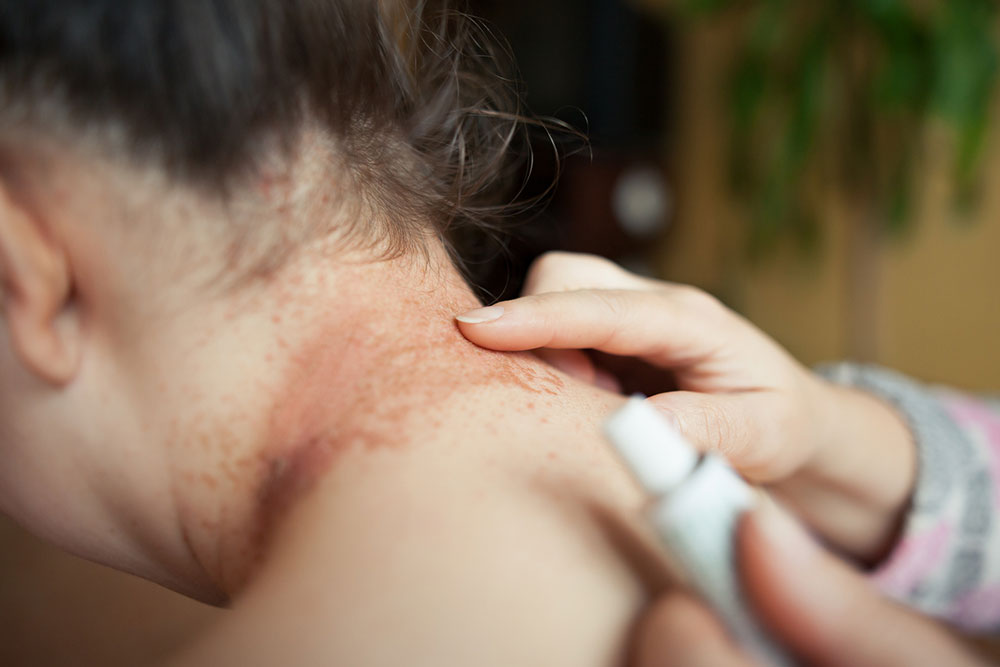Effective Natural Strategies and Home Remedies for Managing Eczema
Discover comprehensive natural strategies and home remedies to manage eczema effectively. This guide covers skincare routines, environmental adjustments, natural oils, and when to seek medical advice for severe cases, helping you soothe and protect your skin naturally and sustainably.

Effective Natural Strategies and Home Remedies for Managing Eczema
Eczema, medically known as atopic dermatitis, is a common chronic skin condition that affects millions of people worldwide. Characterized by severe itching, redness, inflammation, and sometimes the formation of bumps that resemble blisters, eczema can significantly impact a person's quality of life. While various treatments are available, many individuals seek natural and home-based remedies to soothe their skin and reduce flare-ups. Understanding how to manage eczema naturally involves adopting a comprehensive approach that combines lifestyle modifications, gentle skincare routines, and awareness of triggers.
This detailed guide explores effective home remedies, preventive measures, and natural strategies aimed at easing the symptoms of eczema. It emphasizes the importance of tailored care based on severity, discusses safe home treatments for mild cases, and outlines when to seek medical assistance for more serious episodes.
Understanding Eczema and Its Symptoms
Eczema manifests as dry, inflamed patches of skin that are intensely itchy. In some cases, these patches may become swollen, oozing, crusted, or develop into bumps that look like small blisters. The inflamed areas are often prone to scratching, which can exacerbate symptoms and lead to infection or scarring.
Infants are particularly susceptible to eczema, often experiencing outbreaks on their cheeks, elbows, and knees. In adults, eczema can appear on various parts of the body and may be triggered or worsened by environmental irritants, allergens, stress, or certain foods.
Causes and Triggers of Eczema
The exact cause of eczema remains unknown, but it is believed to involve a combination of genetic and environmental factors. People with eczema often have a genetic predisposition that results in a weakened skin barrier, making their skin more sensitive to irritants and allergens.
Common triggers include:
Harsh soaps and detergents
Perfumed skin products and cosmetics
Weather extremes, especially dry cold or hot and humid climates
Dust mites and pet dander
Stress and emotional strain
Certain foods such as dairy, nuts, or eggs, in some cases
Natural Home Remedies and Lifestyle Adjustments
If you're looking to manage eczema naturally at home, it’s essential to incorporate gentle skincare routines and lifestyle habits that support healthy skin. Here are some practical tips and remedies:
1. Maintain Proper Skin Hydration
Keeping the skin well-hydrated is crucial in preventing and reducing eczema flare-ups. Use gentle, fragrance-free moisturizers immediately after bathing to lock in moisture. Ingredients like ceramides, shea butter, and natural oils can help reinforce the skin’s barrier function.
Daily warm baths complemented by occlusive moisturizers are highly effective. Avoid hot water, which can strip natural oils, and instead opt for lukewarm baths lasting 10-15 minutes. Pat the skin dry gently, leaving it slightly damp to enhance absorption of moisturizers.
2. Use Natural Oils and Emollients
Applying natural oils such as coconut oil, olive oil, or jojoba oil can soothe irritated skin and reduce inflammation. These oils contain antioxidants and fatty acids that support skin repair and provide a protective barrier against environmental irritants.
3. Avoid Known Irritants and Allergens
Switch to unscented, hypoallergenic skincare products. Avoid harsh soaps, alcohol-based hand sanitizers, and heavily perfumed lotions. Use gentle cleansers formulated for sensitive skin and wear soft, breathable fabrics like cotton to reduce skin irritation.
4. Incorporate Oatmeal Baths and Soothers
Colloidal oatmeal baths are widely recognized for their calming properties. Add finely ground oats to lukewarm bathwater to help soothe itching, reduce inflammation, and moisturize the skin naturally. Oatmeal also forms a protective barrier, preventing further irritation.
5. Keep Environment Clean and Allergen-Free
Maintain a clean living space to reduce dust mites, pet dander, and mold. Use air purifiers if necessary, and wash bedding regularly in hot water. Reducing exposure to allergens can significantly lessen eczema flare-ups.
6. Manage Stress and Practice Relaxation Techniques
Stress is a significant trigger for eczema episodes. Engage in relaxation methods such as yoga, meditation, breathing exercises, or deep relaxation to help keep stress levels in check. Adequate sleep and balanced diet also contribute to overall skin health.
Natural Supplements and Herbal Remedies
Some herbal supplements and natural remedies may provide additional relief. For example:
Turmeric supplements for their anti-inflammatory properties
Probiotic-rich foods to support gut health, which can influence skin conditions
Topical herbal preparations like aloe vera gel for soothing inflamed patches
Always consult with a healthcare professional before starting any new supplement or herbal treatment, especially if you are on medication or have underlying health conditions.
When to Seek Medical Advice
While many mild eczema cases can be managed with home remedies, certain situations require professional medical intervention:
If the eczema worsens or spreads despite home care
Presence of infection signs such as increased redness, pus, or warmth
Severe oozing, crusting, or bleeding
If eczema significantly interferes with daily activities or sleep
In severe cases, doctors may prescribe corticosteroid creams, antihistamines, or recommend light therapy. In certain circumstances, hospitalization may be necessary for intensive treatment and control.
Conclusion
Managing eczema naturally involves a combination of gentle skin care, lifestyle adjustments, and avoiding known triggers. Incorporating natural remedies like moisturizers, oatmeal baths, and allergen reduction can significantly improve symptoms and enhance skin health. Remember, early intervention and consistent care are key to preventing severe flare-ups and maintaining skin wellness. Consult healthcare professionals for personalized treatment plans, especially for severe or persistent cases. With patience, proper self-care, and the right strategies, living comfortably with eczema is achievable.





